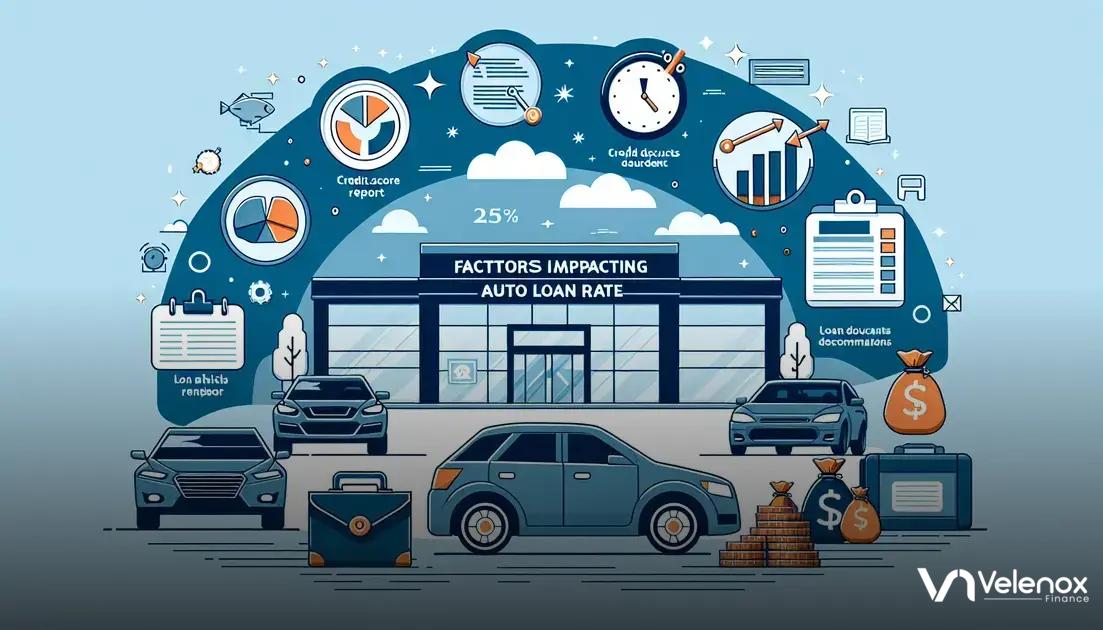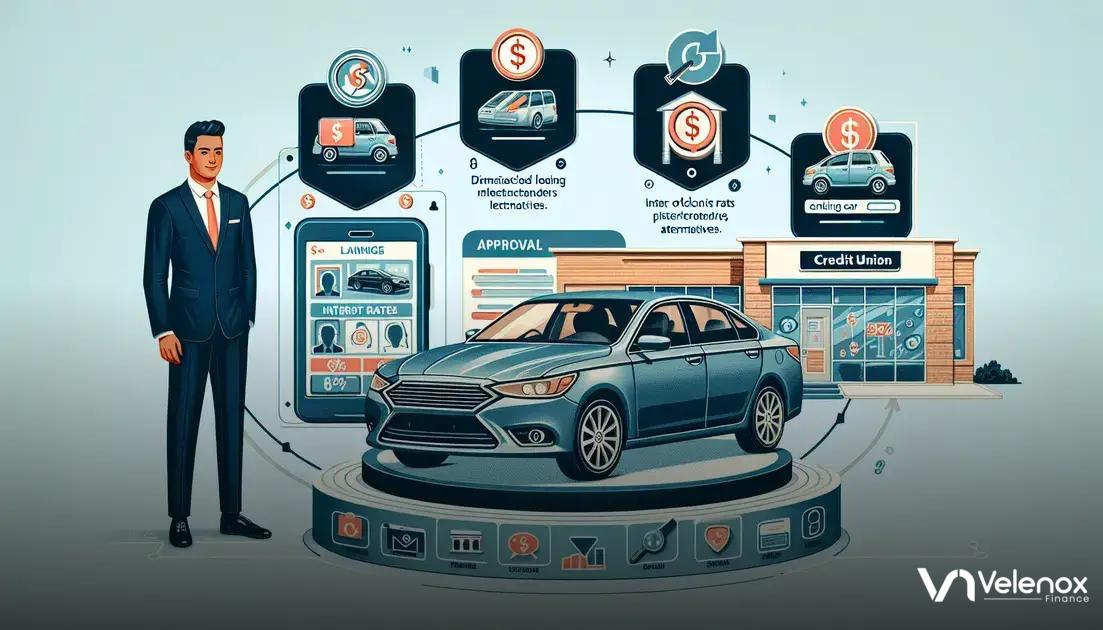Securing the best rates on auto loans can be challenging, but understanding the fundamentals is essential. Whether you’re purchasing a new car or refinancing an existing loan, our expert tips cover everything from improving your credit score to comparing lenders effectively.
Understanding auto loans basics
An auto loan is a type of installment loan that allows you to borrow a specific amount of money to buy a car. You’ll repay this amount, plus interest, over a set period. Understanding the basics of auto loans can help you navigate the process and secure the best rates.
Interest rates on auto loans can be fixed or variable. Fixed rates remain the same throughout the loan term, providing predictable monthly payments. Variable rates, on the other hand, may change based on market conditions. Knowing the difference can help you choose the best option for your needs.
Another critical factor is the loan term. Auto loan terms typically range from 24 to 84 months. While longer terms mean lower monthly payments, they also result in higher interest costs over time.
It’s essential to understand the total cost of the loan, not just the monthly payments. Fees, taxes, and insurance add to the overall expense. By thoroughly understanding these basics, you can make informed decisions and select the best auto loan for your financial situation.
Factors affecting your auto loan rates

1. Credit Score
This is the most crucial factor. Lenders use your credit score to assess the risk of lending you money. A higher score means lower risk, which translates to lower interest rates. On the other hand, a lower score might lead to higher rates or even loan disapproval.
2. Loan Term
The length of your loan term can significantly affect your interest rate. Shorter terms usually come with lower rates but higher monthly payments. Longer terms have lower monthly payments but can cost more in interest over time.
3. Down Payment
A larger down payment reduces the amount you need to borrow, which can help you secure a better interest rate. Lenders often view this as a sign of financial stability.
4. Vehicle Type
The type and age of the car you’re buying can also influence your loan rate. Newer cars often have lower interest rates compared to older, used cars. Lenders see new cars as less risky because they have a higher resale value.
5. Income Level
Your income is a key indicator of your ability to repay the loan. Higher income can lead to better loan offers, while inconsistent or low income might result in higher rates.
6. Debt-to-Income Ratio
This ratio compares your monthly debt payments to your monthly income. A lower ratio is favorable and can help you get a lower interest rate. It indicates that you have a good balance of income to debt and are less likely to default.
Note: Different lenders may weigh these factors differently. It’s important to shop around and compare offers to find the best rate for your situation.
How to improve your credit score for better rates
To ensure you get the best rates on your auto loan, improving your credit score is essential. A higher credit score can significantly lower the interest rates offered by lenders. Here are some effective strategies:
Pay Your Bills on Time
Your payment history greatly impacts your credit score. Make sure to pay all of your bills on time, as late payments can negatively affect your credit history.
Reduce Outstanding Debts
High levels of outstanding debt can lower your credit score. Focus on paying down any existing debts to improve your overall credit utilization ratio, ideally keeping it below 30%.
Check Your Credit Report Regularly
Errors or discrepancies on your credit report can negatively impact your score. Obtain a free credit report annually from the three major credit bureaus and dispute any inaccuracies.
Avoid Opening Too Many New Accounts
Opening multiple new credit accounts in a short period can negatively impact your score. Each application can result in a hard inquiry, which can lower your score temporarily.
By following these tips, you can enhance your credit score and secure better rates for your auto loan, saving you money over the life of the loan.
Comparing different lenders for auto loans

When comparing different lenders for auto loans, it’s crucial to examine several key factors to ensure you get the best deal. First, assess the interest rates offered by each lender. Interest rates can vary significantly, and even a small difference can impact your total repayment amount.
Next, consider the loan terms. Some lenders may offer more flexible repayment periods, allowing you to choose a term that fits your financial situation. Additionally, look at any potential fees involved, such as origination fees, prepayment penalties, or late payment fees.
Review the reputation and customer service records of the lenders. Reading reviews and customer testimonials can provide insight into the lender’s reliability and supportiveness throughout the loan process. Always choose a lender with a strong track record of customer satisfaction.
Lastly, don’t forget to explore any special programs or discounts that lenders might offer. Some lenders may provide discounts for automatic payments or have programs tailored for first-time buyers or those with excellent credit scores.
Common mistakes to avoid when applying for auto loans
One common mistake is not reviewing your credit report before applying for an auto loan. Errors on your report can negatively impact your credit score, leading to higher interest rates.
Many applicants overlook pre-approval, which can give you a better understanding of the loan amount you qualify for and the terms you can expect. This step often provides more bargaining power at the dealership.
Another frequent error is skipping the process of comparing different lenders. Each lender offers varied interest rates and terms, so it’s crucial to shop around to find the best deal.
Some people focus solely on monthly payments and ignore the total cost of the loan. While lower monthly payments may seem attractive, they can involve longer terms and higher overall interest payments.
Failing to set a budget before visiting dealerships can lead to impulsive decisions and a loan that strains your finances. Always determine how much you can realistically afford to borrow and repay.
Lastly, inadequate down payment is another mistake. A larger down payment reduces the loan amount and potentially lowers the interest rate, leading to significant savings over time.





